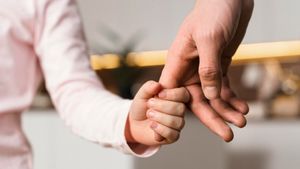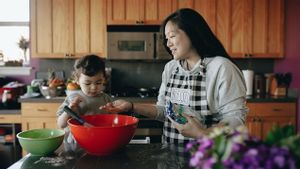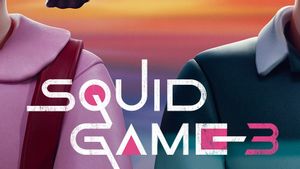JAKARTA - As a parent, you know that babies love to be held, small children love to be hugged, and even older children need regular hugs from their parents. But many parents don't realize that there are benefits to offering their children hugs.
Cuddling can release oxytocin or the love hormone. There is even evidence to suggest that hugging can lower blood pressure, reduce disease severity, and help a person recover from interpersonal conflict.
Four studies have found that parental warmth provides children with important benefits related to academic success and better self-regulation skills. According to a 2020 study published in Frontiers in Psychiatry, receiving warmth from parents also helps children become more resilient in life.
One of the best ways to express parental warmth is through hugs.
"Hugs are a symbol of love and affection and are an easy way to show positive emotions," says Diane Franz, PhD, director of psychology at New Orleans Children's Hospital, reported by Very Well Family, Friday, March 24.
SEE ALSO:
"Hugs convey a degree of intimacy between the people involved, and usually reflect a positive relationship."
In fact, no amount of hugs is needed for a child to thrive.
"There is no exact amount because each child's need for physical affection can be different," said Dr. Franz.
He added that young children usually seek more hugs than older children. But then again, it can vary from child to child and depends on their comfort level with physical affection."
Robyn Rausch, LPC-S, RPT-S, a licensed professional counseling supervisor and registered play therapist who runs a platform called Calming Communities explains that there are many benefits to hugging.
"Hugs are important for humans in general, but they are even more important for children because their brains are actively developing," says Rausch.
“Hugs give people a sense of connection. For children, hugs can be as important as food, water and shelter," Rausch explained further.
The English, Chinese, Japanese, Arabic, and French versions are automatically generated by the AI. So there may still be inaccuracies in translating, please always see Indonesian as our main language. (system supported by DigitalSiber.id)


















